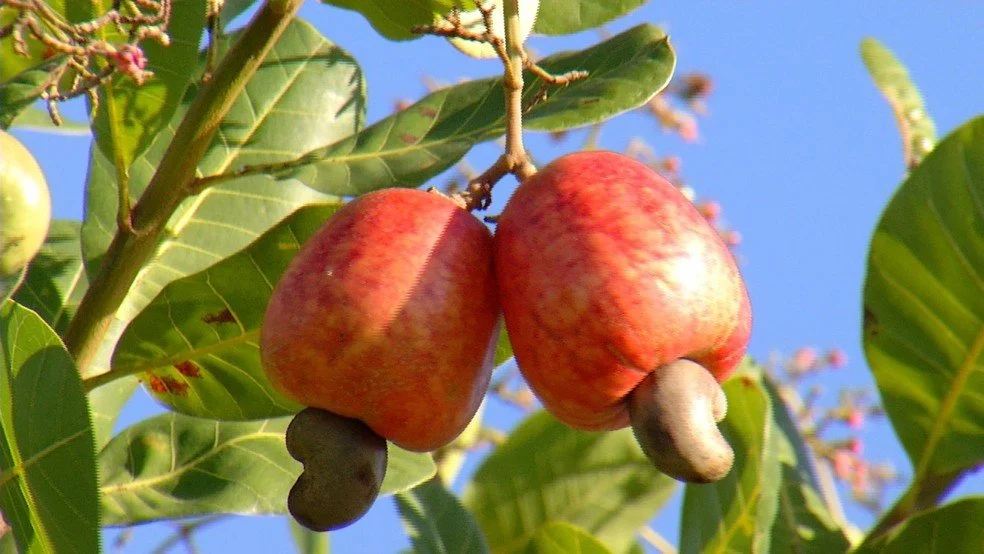Vou mandar lecô cajueiro,
Vou mandar loiá.
Vou mandar lecô cajueiro,
Vou mandar loiá.
Vou mandar lecô cajueiro,
vou mandar loiá.
Vou mandar lecô cajueiro,
vou mandar loiá.
Vou mandar lecô
cajuê
Vou mandar loiá
cajuê
Vou mandar lecô
cajuê
Vou mandar loiá
cajuê
I’ll send you to look by the cashew tree.
I’ll send you there to look.
I’ll send you to look by the cashew tree.
I’ll send you there to look.
I’ll send you to look by the cashew tree.
I’ll send you there to look.
I’ll send you to look by the cashew tree.
I’ll send you there to look.
I’ll send you to look by the cashew tree.
cashew tree
I’ll send you there to look.
cashew tree
I’ll send you to look by the cashew tree.
cashew tree
I’ll send you there to look.
cashew tree
During the colonial period in Brazil the cajueiro fruit tree (from this fruit the cashew is extracted) was very abundant. This fruit is rich in vitamin C and iron in addition to having other medicinal properties. Many enslaved people had the habit of resting under this tree. When the services of these men were needed and they were not found, it was deduced that they were there, under the tree of the "cajueiro".
This song can be used in either an ironic way or as a direct commentary when a player ‘goes missing’ in a game.
Lecô and loiá do not have direct translations into English and may be deduced in the following way:
Vou mandar lecô = Vou mandar-lhe olhar ao cajueiro = I’ll send you to look by the cashew tree
Mandar loiá = Mandar-lhe lá olhar = I’ll send you there
10:10 Vou mandar lecô



